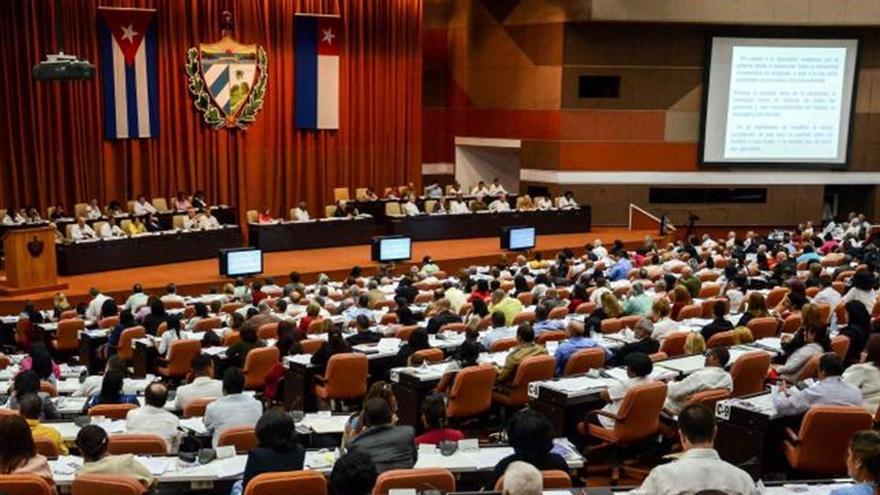
![]() 14ymedio, Havana, 6 June 2021 — The health crisis due to Covid-19 in Cuba continues to add records and has also changed the political rhythm of the country. The session of the People’s Power Assembly, which had been called for mid-July, was suspended this Monday after the unstoppable increase in infections.
14ymedio, Havana, 6 June 2021 — The health crisis due to Covid-19 in Cuba continues to add records and has also changed the political rhythm of the country. The session of the People’s Power Assembly, which had been called for mid-July, was suspended this Monday after the unstoppable increase in infections.
Esteban Lazo Hernández, president of the Parliament, decided to annul the convocation of the Seventh Regular Period of Sessions due to “the complex epidemiological situation” of “the last days” and the measures approved to counteract the increase in cases.
Ordinarily the Assembly meets twice a year at the end of each semester for a maximum term of three days. Prior to the parliamentary meeting, the different permanent committees meet. With the pandemic, the more than 600 deputies have had to work virtually, although some face-to-face hearings have been held.
One of those meetings took place at the end of May to demand the “lifting of the blockade,” during which Yuri Valdés, deputy director of the Finlay Institute, acknowledged that there are insufficient doses of the vaccines that the country develops and blamed the United States for this. “It must be said that we have not vaccinated more Cubans because we have not had the resources to make more vaccines, let the world be clear,” said the official.
July, which was presented as the month of the more than 3,000 patients in a day, returns to report a maximum number of infections on Tuesday with 3,591, for a cumulative of 210,913 cases since the pandemic began in March of last year. There have been 1,387 deaths, 15 of them in the last day, informed the Ministry of Public Health.
The provinces that reflect the worst numbers this Tuesday are: Matanzas (874), Havana (591), Santiago de Cuba (340), Camagüey (269) and Ciego de Ávila (230). In addition, in some of these the health systems are showing signs of collapse.
Several complaints on social networks exposed the overburdening of Matanzas hospitals to the point that the official press, after several days, had to report on the situation. The authorities assured that they will double the number of intensive care beds after recognizing that one of the main problems in the territory is “the quality of patient care,” in the words of Deputy Minister Jorge Luis Tapia Fonseca. The official urged an increase in the number of isolation centers and a “comprehensive” improvement in their conditions.
In that same province, a large number of imported cases are reported. More than 150 Russians who arrived in the country in the last ten days, and they have expressed their outrage on social networks for being “imprisoned” in their hotels in Varadero. Some have warned other potential travelers to “think about it a hundred times” before arranging a vacation on the island, in addition to lamenting the little support from their country’s consular officials.
In Camagüey, the Manuel Ascunce Domenech Provincial University Hospital also collapsed at the end of last month and photos of patients lying on the floor of the health center circulated on social media. In addition, as reported by ADN Cuba, the clinical laboratories where the PCR tests are carried out also exceeded their maximum capacity for tests.
The country is experiencing a phase of community transmission of the disease with 20,307 active cases, of whom 70 are in critical condition and 120 serious. Of those reported this Tuesday, 562 are pediatric patients, 34 of whom are less than a year old, including 15 infants under six months.
In the last two weeks, Public Health has registered 40,439 locally transmitted cases and 1,109 imported.
____________
COLLABORATE WITH OUR WORK: The 14ymedio team is committed to practicing serious journalism that reflects Cuba’s reality in all its depth. Thank you for joining us on this long journey. We invite you to continue supporting us by becoming a member of 14ymedio now. Together we can continue transforming journalism in Cuba.
